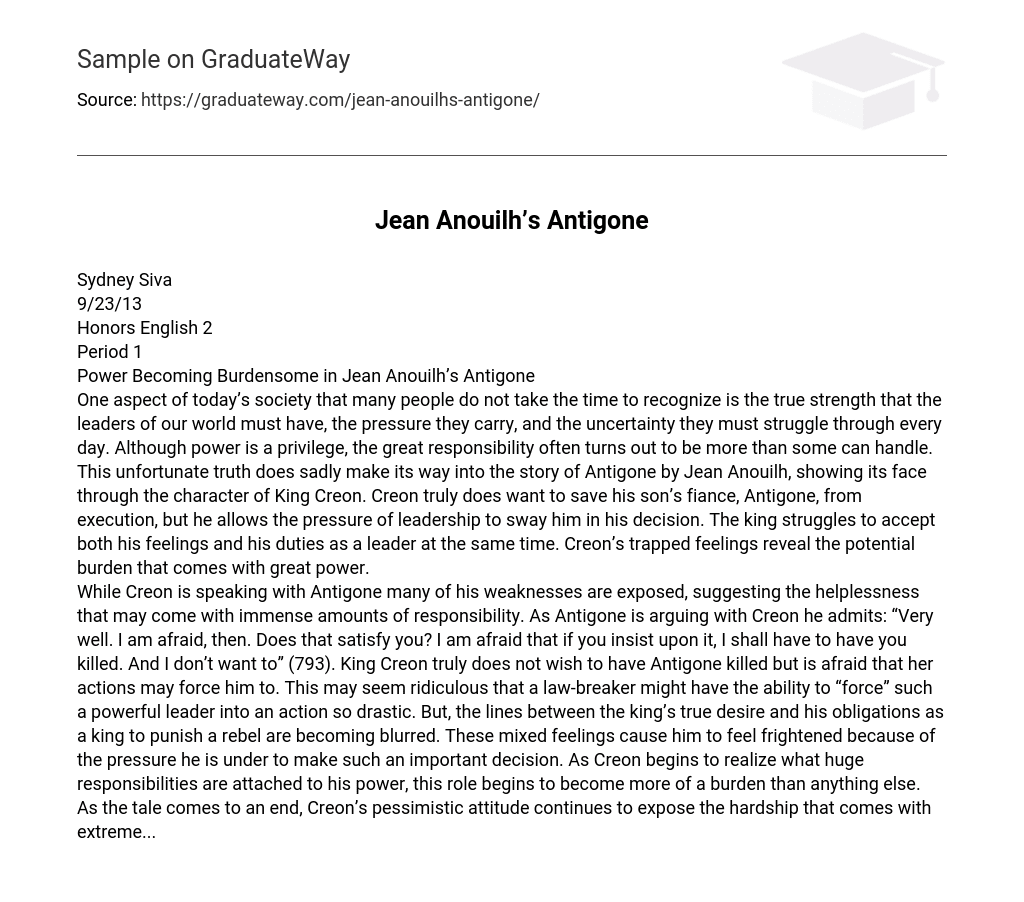Power Becoming Burdensome in Jean Anouilh’s Antigone One aspect of today’s society that many people do not take the time to recognize is the true strength that the leaders of our world must have, the pressure they carry, and the uncertainty they must struggle through every day. Although power is a privilege, the great responsibility often turns out to be more than some can handle. This unfortunate truth does sadly make its way into the story of Antigone by Jean Anouilh, showing its face through the character of King Creon. Creon truly does want to save his son’s fiance, Antigone, from execution, but he allows the pressure of leadership to sway him in his decision. The king struggles to accept both his feelings and his duties as a leader at the same time. Creon’s trapped feelings reveal the potential burden that comes with great power.
While Creon is speaking with Antigone many of his weaknesses are exposed, suggesting the helplessness that may come with immense amounts of responsibility. As Antigone is arguing with Creon he admits: “Very well. I am afraid, then. Does that satisfy you? I am afraid that if you insist upon it, I shall have to have you killed. And I don’t want to”. King Creon truly does not wish to have Antigone killed but is afraid that her actions may force him to. This may seem ridiculous that a law-breaker might have the ability to “force” such a powerful leader into an action so drastic. But, the lines between the king’s true desire and his obligations as a king to punish a rebel are becoming blurred. These mixed feelings cause him to feel frightened because of the pressure he is under to make such an important decision. As Creon begins to realize what huge responsibilities are attached to his power, this role begins to become more of a burden than anything else. As the tale comes to an end, Creon’s pessimistic attitude continues to expose the hardship that comes with extreme…





